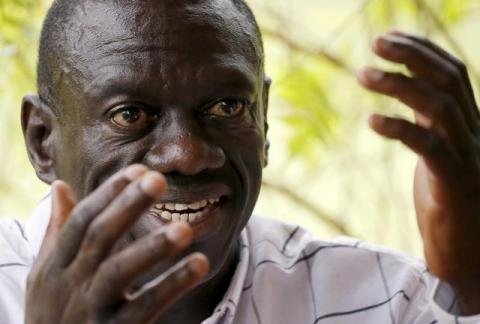Advertisement
Ugandan opposition leader arrested as post-election tensions linger
KAMPALA (Reuters) - Ugandan police arrested opposition leader Kizza Besigye on Tuesday amid clashes with his supporters, highlighting lingering tensions after a disputed presidential election.
Veteran President Yoweri Museveni was declared winner of the Feb. 18 election with 60 percent of the vote, although Besigye and other candidates rejected the results as fraudulent.
Besigye, who came second with 35 percent, said widespread rigging, intimidation by security personnel, ballot stuffing and other irregularities had made the vote invalid.
That criticism was echoed by independent monitors from the European Union and the Commonwealth who said Uganda's electoral body lacked independence and transparency and that the poll had been conducted in an intimidating atmosphere.
Police spokesman Patrick Onyango said Besigye had been arrested as he left his home after defying orders to use a designated route.
"He insisted on driving through the city centre with his supporters ... he would not listen to orders to use a different route," Onyango said.
Besigye was being held at a police station in Mukono, about 24 km east of the capital Kampala. Onyango said he had been charged with participating in an unlawful assembly. He did not say whether Besigye might be released on bond.
Footage on local television showed a heavy contingent of police trucks, armoured vehicles and personnel intercepting Besigye as he was driving into the city centre with a procession of supporters.
Officials say they suspect Besigye wants to topple the government through street protests, and he has been kept under virtual house arrest since polling day.
On Friday, however, police said they would withdraw a contingent stationed outside his house, where he had been receiving visits from supporters, religious leaders and human rights organisations.
Some analysts said the government might be becoming uncomfortable with the attention Besigye was getting.
But Ingrid Turinawe, a senior official in Besigye's Forum for Democratic Change (FDC), said she believed the withdrawal of the police guard had been a ruse.
"I think they wanted him to come out of his home so they could arrest him and keep him in a police cell for maximum isolation," she said.
(Reporting by Elias Biryabarema; Editing by Kevin Liffey)



















Add new comment